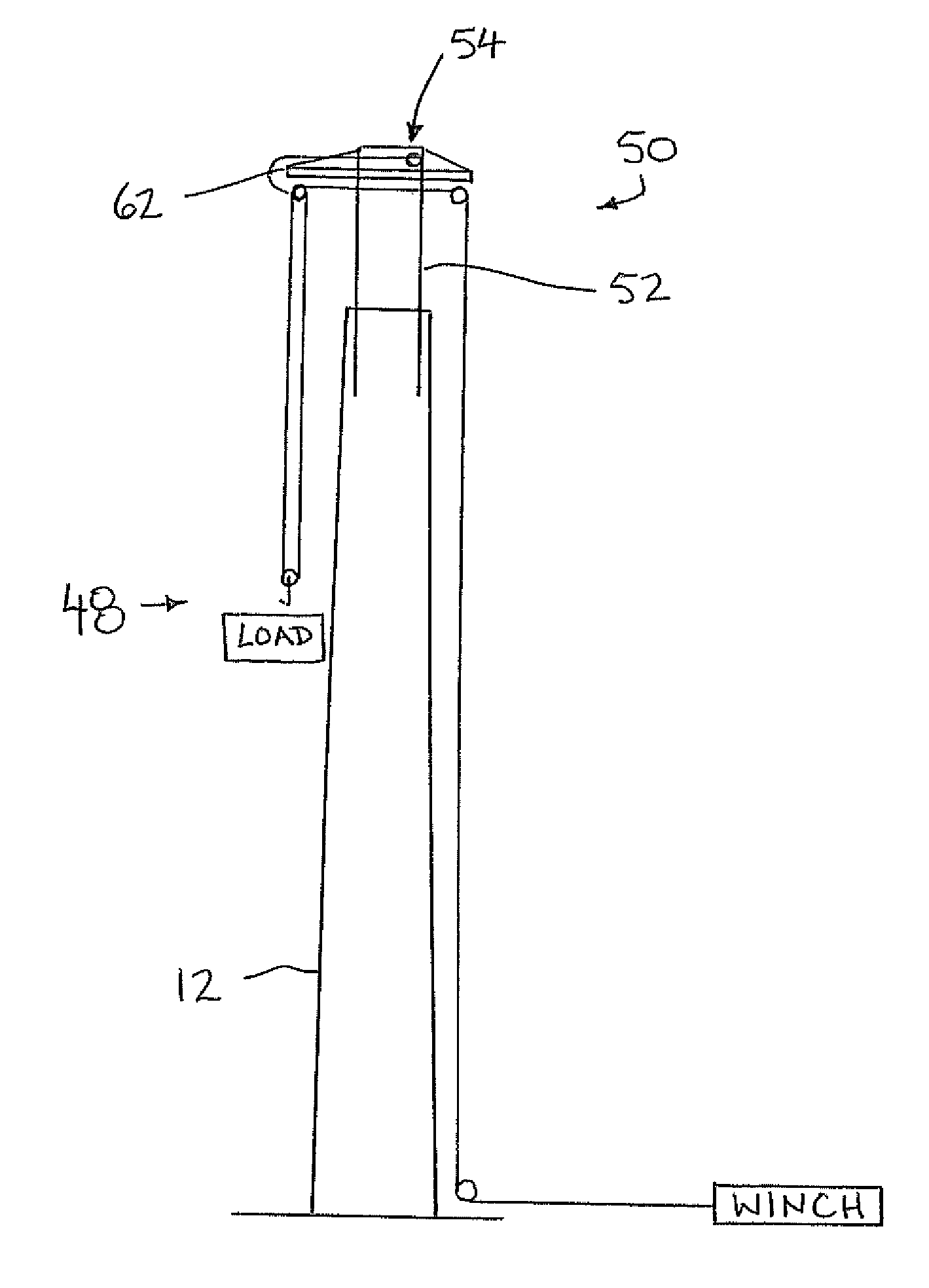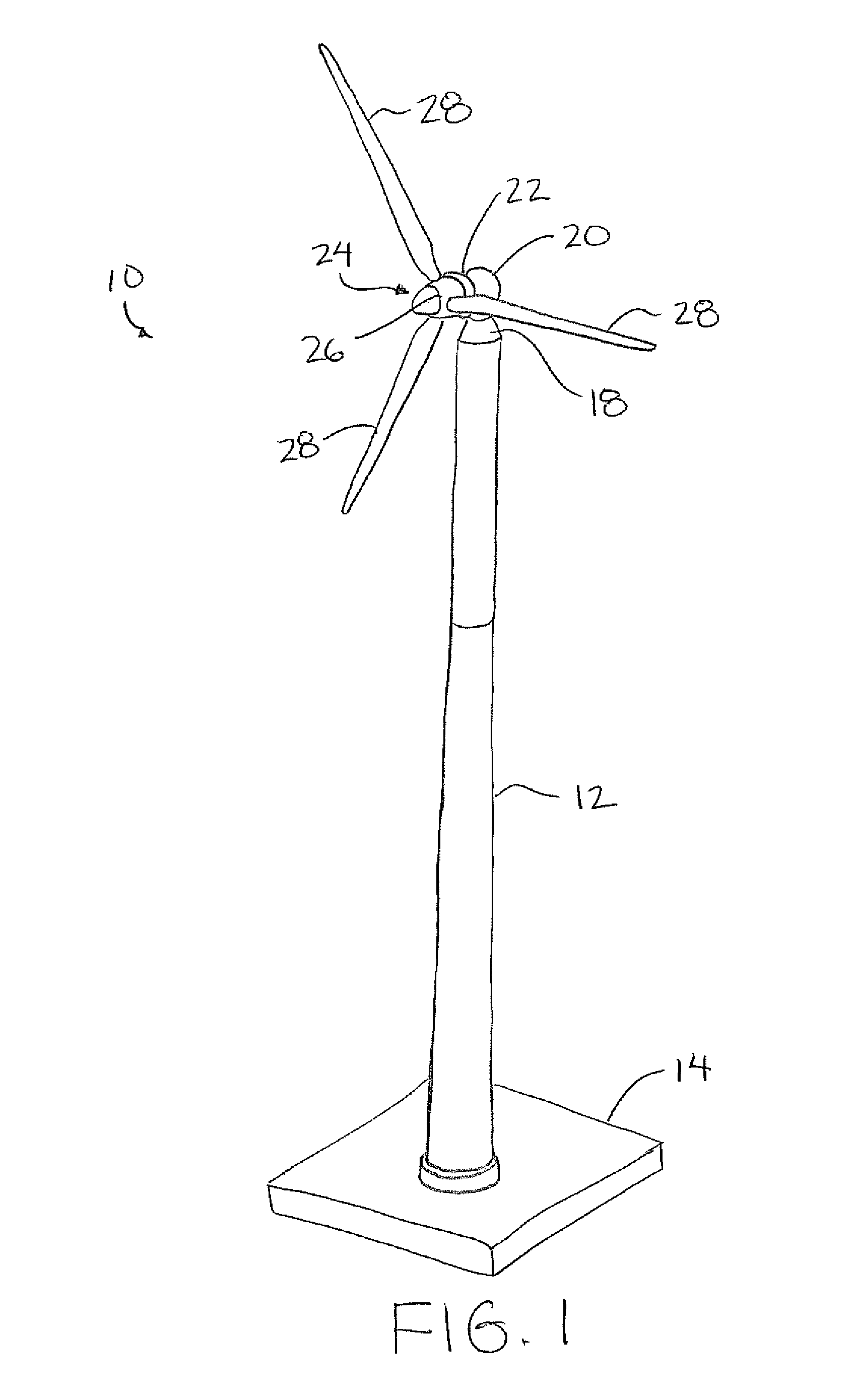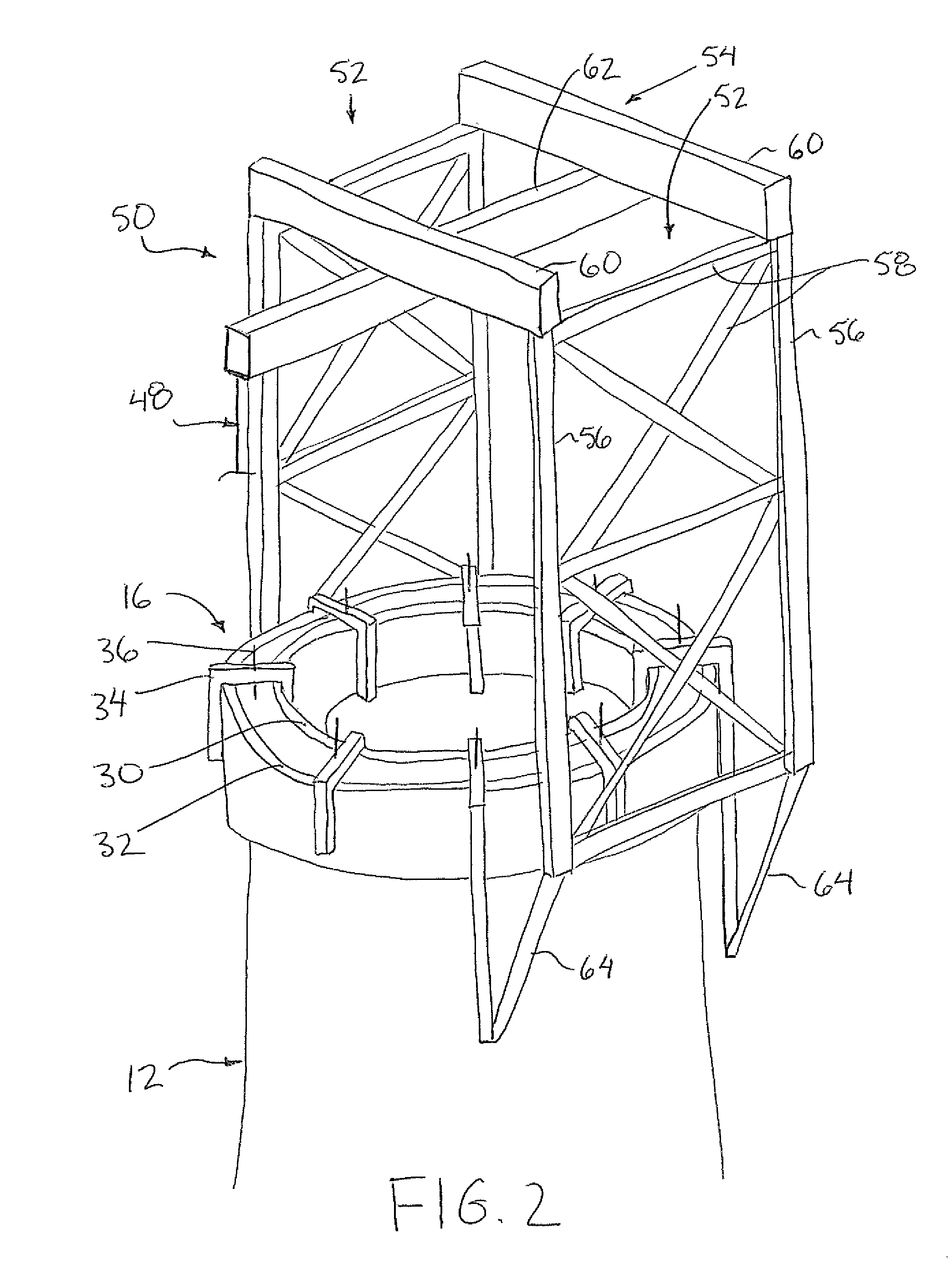Slip Formed Concrete Wind Turbine Tower
- Summary
- Abstract
- Description
- Claims
- Application Information
AI Technical Summary
Benefits of technology
Problems solved by technology
Method used
Image
Examples
Embodiment Construction
[0051]Referring to the accompanying figures there is illustrated a wind turbine generally indicated by reference numeral 10. The turbine 10 comprises a tower 12 supported on a suitable foundation 14 on the ground. The foundation comprises any suitable base in the form of a pad or piles in the ground and the like. The tower 12 is erected to extend upwardly from the foundation to a top end of the tower by using a slip form 16 as described and illustrated herein. The resulting tower is generally circular in cross section and is tubular in shape defining a hollow interior surrounded by a perimeter wall having an inner surface and an outer surface which are generally cylindrical in shape.
[0052]A transition member 18 is supported on the top end of the tower and serves to support a nacelle 20 thereon such that the nacelle is pivotal about a vertical pivot axis relative to the tower. A generator 22 and rotor 24 are supported on the nacelle for rotation about a horizontal turbine axis. The r...
PUM
| Property | Measurement | Unit |
|---|---|---|
| Diameter | aaaaa | aaaaa |
Abstract
Description
Claims
Application Information
 Login to View More
Login to View More - R&D
- Intellectual Property
- Life Sciences
- Materials
- Tech Scout
- Unparalleled Data Quality
- Higher Quality Content
- 60% Fewer Hallucinations
Browse by: Latest US Patents, China's latest patents, Technical Efficacy Thesaurus, Application Domain, Technology Topic, Popular Technical Reports.
© 2025 PatSnap. All rights reserved.Legal|Privacy policy|Modern Slavery Act Transparency Statement|Sitemap|About US| Contact US: help@patsnap.com



